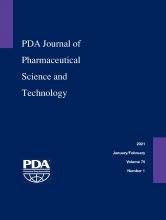Abstract
Knowledge management (KM) is identified in ICH Q10 (Pharmaceutical Quality System), as a key enabler to the pharmaceutical quality system (PQS). ICH Q8 (Pharmaceutical Development), ICH Q11 (Development and Manufacture of Drug Substances), and ICH Q12 (Technical and Regulatory Considerations for Pharmaceutical Product Lifecycle Management) each build on the expectation that knowledge will be managed effectively in order to support and improve the product and process across the pharmaceutical product life cycle. However, in spite of the fact that KM was introduced in ICH Q10 over 10 years ago, there is ample evidence that it is not yet a mature discipline within the biopharmaceutical sector, and the authors suggest that this could hinder full realization of the potential benefits of ICH Q8, ICH Q11, and ICH Q12. The Pharmaceutical Regulatory Science Team (PRST), a research team based at the Dublin Technological University (TU Dublin) in Ireland, has been conducting research on KM for several years, and this paper presents the next phase in this research. Specifically, the focus of this current research was to explore ways to offer practical solutions to improve the management of knowledge across the pharmaceutical product life cycle, starting with a focus on enhancing knowledge transfer during technology transfer projects. The typical challenges associated with ineffective knowledge transfer were presented and the high-level requirements needed to address these were identified through the research. From these requirements, a four-step framework was developed as a systematic means to enhance knowledge transfer. Accompanying the framework was a KM toolkit consisting of a range of KM practices (tools, processes, and behaviors) to facilitate more effective knowledge flow during technology transfer. It was then illustrated how such a framework can be extended across the entire pharmaceutical product life cycle, supporting the advancement of KM from an enabler in ICH Q10 to a key consideration (both technical and regulatory) in ICH Q12.
- © PDA, Inc. 2021
PDA members receive access to all articles published in the current year and previous volume year. Institutional subscribers received access to all content. Log in below to receive access to this article if you are either of these.
If you are neither or you are a PDA member trying to access an article outside of your membership license, then you must purchase access to this article (below). If you do not have a username or password for JPST, you will be required to create an account prior to purchasing.
Full issue PDFs are for PDA members only.
Note to pda.org users
The PDA and PDA bookstore websites (www.pda.org and www.pda.org/bookstore) are separate websites from the PDA JPST website. When you first join PDA, your initial UserID and Password are sent to HighWirePress to create your PDA JPST account. Subsequent UserrID and Password changes required at the PDA websites will not pass on to PDA JPST and vice versa. If you forget your PDA JPST UserID and/or Password, you can request help to retrieve UserID and reset Password below.






